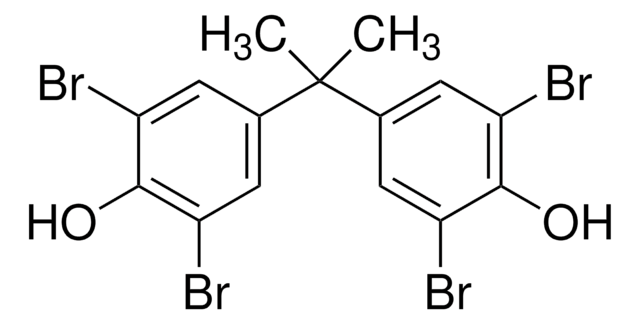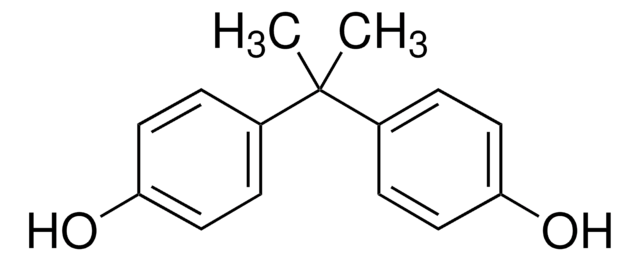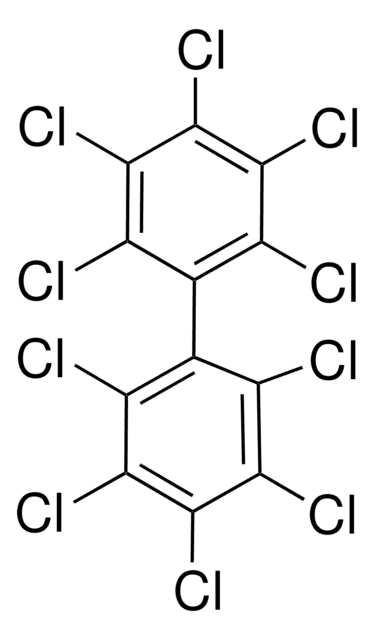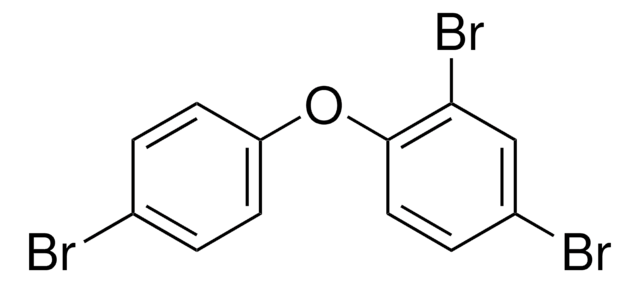73081
Tetrachlorobisphenol A
analytical standard
Synonyme(s) :
4,4′-Isopropylidenebis(2,6-dichlorophenol), 2,2′,6,6′-Tetrachloro-4,4′-isopropylidenediphenol
About This Item
Produits recommandés
Qualité
analytical standard
Niveau de qualité
Pureté
≥98.0% (HPLC)
Durée de conservation
limited shelf life, expiry date on the label
Pf
134-136 °C (lit.)
Format
neat
Chaîne SMILES
CC(C)(c1cc(Cl)c(O)c(Cl)c1)c2cc(Cl)c(O)c(Cl)c2
InChI
1S/C15H12Cl4O2/c1-15(2,7-3-9(16)13(20)10(17)4-7)8-5-11(18)14(21)12(19)6-8/h3-6,20-21H,1-2H3
Clé InChI
KYPYTERUKNKOLP-UHFFFAOYSA-N
Vous recherchez des produits similaires ? Visite Guide de comparaison des produits
Catégories apparentées
Description générale
Application
Produits recommandés
Mention d'avertissement
Warning
Mentions de danger
Conseils de prudence
Classification des risques
Eye Irrit. 2 - Skin Irrit. 2 - STOT SE 3
Organes cibles
Respiratory system
Code de la classe de stockage
11 - Combustible Solids
Classe de danger pour l'eau (WGK)
WGK 2
Point d'éclair (°F)
Not applicable
Point d'éclair (°C)
Not applicable
Faites votre choix parmi les versions les plus récentes :
Déjà en possession de ce produit ?
Retrouvez la documentation relative aux produits que vous avez récemment achetés dans la Bibliothèque de documents.
Notre équipe de scientifiques dispose d'une expérience dans tous les secteurs de la recherche, notamment en sciences de la vie, science des matériaux, synthèse chimique, chromatographie, analyse et dans de nombreux autres domaines..
Contacter notre Service technique







